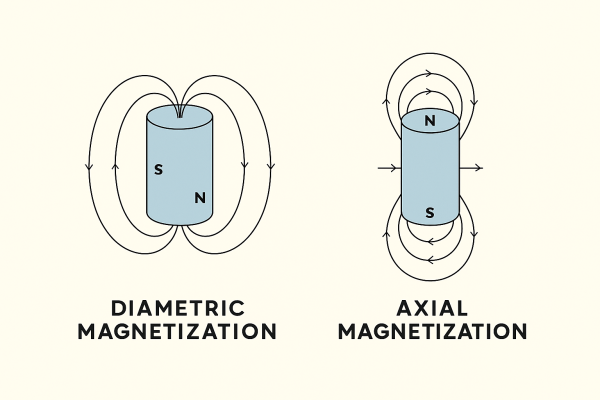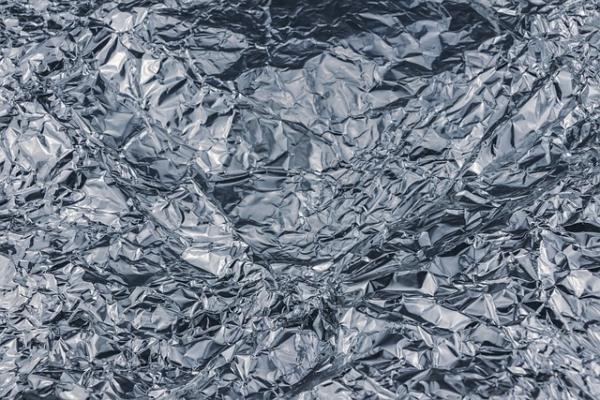Magnet Facts
-
What Are Diametric Magnets and When Should You Use Them
While most magnets are magnetized through their length or thickness, diametric magnets are magnetized across their diameter or width, as in diametric blocks. This creates a distinct magnetic field pattern that opens up new possibilities for industrial applications. If you need more help visualizing the difference, view our helpful video about axial vs. diametric magnets here. If you’re working on... -
Are Magnetic Mounts Safe for Cellphones?
Magnetic phone holders are incredibly convenient, especially for drivers who want hands-free navigation or tech lovers who prefer a clutter-free desk setup. But with all that magnetic force so close to your electronics, it’s natural to ask: Are magnetic mounts safe for cell phones? It’s a great question. After all, magnets can affect electronics in some situations. The good news... -
Why Are Neodymium Magnets So Strong?
If you've ever handled a neodymium magnet, you know they don’t mess around. Even a small disc can snap onto a metal surface with surprising force, and they're not shy about pinching fingers along the way. But why are neodymium magnets so strong? What gives them a powerful magnetic pull compared to magnets like ceramic or Alnico? This blog will... -
How Magnetic Fixturing Supports Sustainable Manufacturing
Magnetic fixturing is a smart, sustainable alternative to traditional clamps, adhesives, and welded jigs in manufacturing environments, especially in metalworking, woodworking, and fabrication. These magnetic systems are durable and reusable and reduce waste generated by disposable components and outdated tooling. Here’s how magnetic fixturing can help your shop cut waste and boost operational flexibility. What is Magnetic Fixturing? Magnetic fixturing... -
Exploring the Kursk Magnetic Anomaly: Earth’s Third Magnetic Pole
If you’ve ever been fascinated by the mysteries of the Bermuda Triangle, you’ll love learning about the Kursk Magnetic Anomaly. While it may not have the same pop-culture fame, this massive geological feature is just as intriguing, especially if you’re into magnetism. Located in southwestern Russia near the border of Ukraine, the Kursk Magnetic Anomaly (or KMA) is the strongest... -
Michael Faraday: The Scientist Who Sparked the Age of Electromagnetism
When we talk about magnetic fields, electricity, or electromagnets in modern applications, there’s one name we owe a lot of credit to: Michael Faraday. He wasn’t a wealthy academic or a university-trained scholar. In fact, Faraday started his career as a bookbinder’s apprentice. But what he lacked in formal education, he more than made up for in curiosity, tenacity, and... -
Magnet Myths Debunked
We're here to share our mega magnet knowledge and debunk some magnet myths. Let's get started! Myth #1: Magnets Last Forever While magnets like neodymium and samarium cobalt are incredibly long-lasting, all magnets eventually lose strength over time, especially when exposed to heat, strong opposing magnetic fields, or physical shock. The truth: Under normal conditions, a high-quality permanent magnet can... -
Exploring the Versatility of Magnetic Materials
From neodymium to ferrite, magnetic materials are the unsung heroes powering some of today’s most advanced technologies. These materials, each with unique magnetic properties, play a critical role in everything from renewable energy systems to high-performance motors and precision tools. In this blog, we’ll explore neodymium, ferrite, and other magnetic materials, their unique properties and characteristics, and real-world applications for... -
Animals And Magnetic Fields
One of the biggest supervillains in comic history is Magneto, a powerful mutant who clashes with the X-Men and has the ability to generate and control magnetic fields. It’s an incredible superpower. And while it seems like the sort of science fiction that could only exist on the pages of a Stan Lee graphic novel, it’s not that far from... -
Unlock Electromagnetic Induction with Aluminum Foil and a Magnet
Magnets are amazing. Among their many amazing properties, they even seem to break the laws of physics—until you understand the science behind them. At Apex Magnets, we embrace the incredible properties of magnetism and how they impact industries, innovation, and everyday life. Today, to illustrate just that, we’re diving into an experiment that has real-world implications The Experiment: A Magnet’s...










